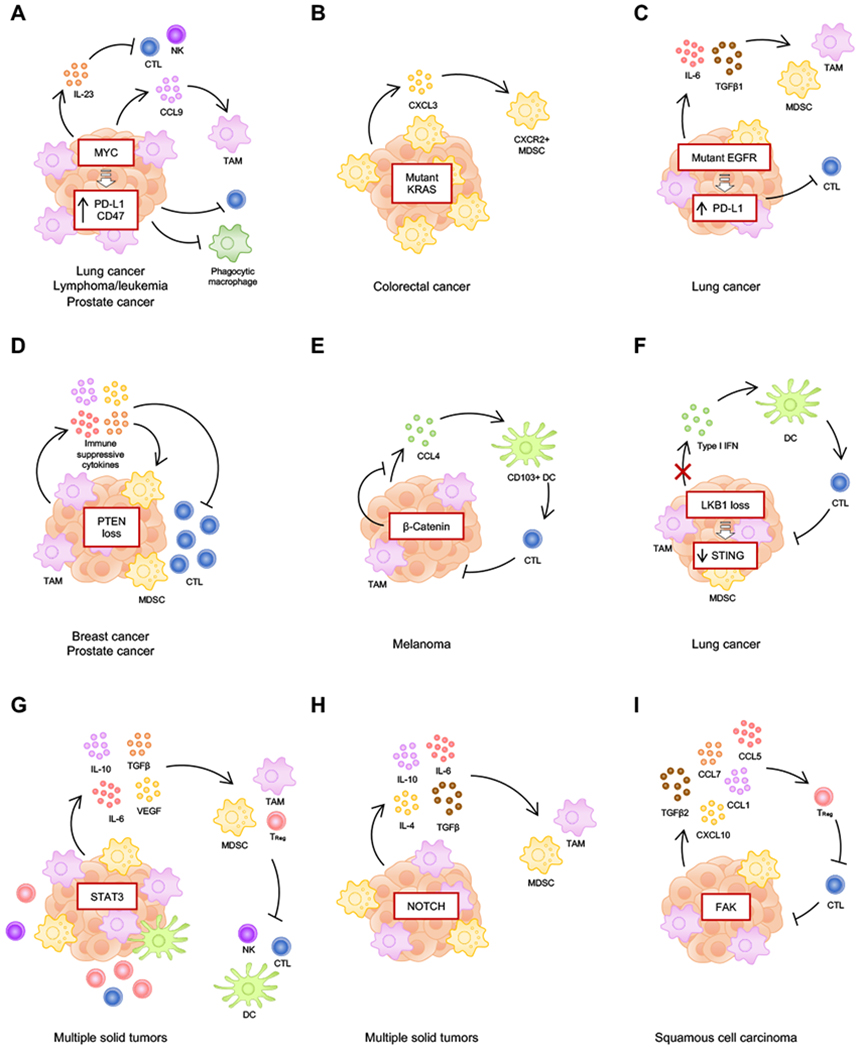Figure 3.

Tumor-intrinsic molecular mechanisms of immune suppression driven by specific oncogenic events. Selected examples are depicted based on mechanistic studies on animal models. Of note, co-occurring oncogenic events affect immune suppressive mechanisms, thus increasing immune heterogeneity between cancer cases. Additional mechanisms linked to each example have also been described but could not be included in this diagram due to space constraints. A, MYC has been shown to promote T-cell and natural killer (NK) cell exclusion, and infiltration of tumor-associated macrophages (TAMs), while also directly inhibiting T-cells and phagocytic macrophages via upregulation of PD-L1 and CD47. B, Mutant KRas has been shown to promote recruitment of myeloid-derived suppressor cells (MDSCs) to the TME through upregulation of CXCL3. C, Mutant EGFR has been shown to up-regulate PD-L1 in tumor cells and to induce recruitment of TAMs and MDSCs. D, Loss of PTEN is associated with increased production of immune suppressive cytokines, which promote the establishment of an immune suppressive tumor microenvironment (TME) and inhibit T-cell infiltration. E, β-Catenin has been shown to inhibit secretion of CCL4 by tumor cells, hence preventing activation of CD103+ dendritic cells (DCs) and subsequent cytotoxic T lymphocyte (CTL) activation. F, Loss of LKB1 down-regulates the STING pathway in tumor cells, thereby preventing release of type I IFNs in response to cytoplasmic double-stranded DNA (dsDNA), which would otherwise stimulate immune response. G, STAT3 signaling in tumor cells induces upregulation of multiple cytokines that contribute to the establishment of an immune suppressive TME by stimulating suppressive immune cells and inhibiting effector cells. H, Dysregulated NOTCH promotes an immune suppressive TME via multiple anti-inflammatory cytokines. I, FAK has been shown to stimulate regulatory T-cells (TRegs) by upregulating numerous cytokines.
